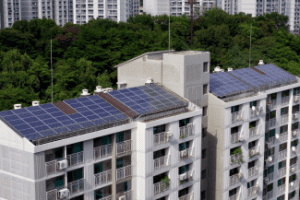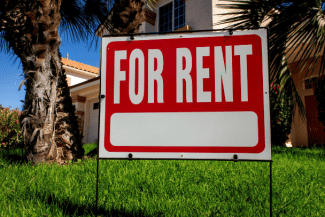Why Natural Gas Prices Are So High and How to Combat These Prices in Multifamily Real Estate
By Christian Redden, Investment Advisor at Marcus & Millichap
The recent surge in natural gas prices has created a challenging environment for multifamily property owners. Natural gas prices are at their highest level in years, and this increase in prices is due to various factors, including increased demand, supply chain disruptions, extreme weather conditions, and the Russia-Ukraine war. My name is Christian Redden, an Investment Sales Advisor for Marcus & Millichap, specializing in Multifamily and based in Baton Rouge, Louisiana. I have been in this business the past 18 months starting at the age of 22 and I hope to illustrate why natural gas prices are so high, how this affects multifamily assets, and how you can strategize around this for maximum return.

The recent cold weather conditions across the United States have led to an increase in demand for natural gas, further putting pressure on the already tight supplies. The hurricane season in the Gulf of Mexico can also disrupt natural gas production, leading to supply shortages and higher prices.
The Russia-Ukraine war is another reason for the high natural gas prices, and perhaps the most influential. Russia is one of the largest natural gas exporters to Europe, and the conflict between Russia and Ukraine has created a sense of uncertainty in the energy markets, leading to higher prices. After Russia invaded, the West introduced financial sanctions on Russia. Russia is estimated to account for about 10% of the global oil supply. The oil is still being traded, but not to the same degree it once was, shortening the supply. The price of oil is also seemingly being driven up because of previously stated factors, but also because there has been less capital invested into oil resources due to the ascending renewable energy sector. Many investors are seeing the oil industry to not be as profitable as it once was.
As a multifamily property owner, high natural gas prices can lead to higher operating costs and reduced returns on investment. However, there are several strategies that can be implemented to combat the impact of high natural gas prices and increase investment returns.
Before I get into the main strategies to combat the rising costs of natural gas, I would like to introduce a system that some might not be familiar with. This system is called RUBS, an acronym for Ratio Utility Billing System. RUBS is a method of allocating utility costs in apartments and other multifamily properties. The utility bill is distributed to each tenant based on some kind of allocation usage formula. This can consist of square footage, number of occupants, number of bathrooms, number of water fixtures, etc. Water is the most common RUBS participant, but this can be done with any utility, including trash, gas, and sewage.
To give an example of this, I would like to illustrate a 10-unit apartment complex, 5 one beds, and 5 two beds, combining for a total of 15 bedrooms. Using the RUBS formula built around the number of beds, we can allocate each bedroom for 6.66% of the utilities, based on the assumption that more people will use more utilities. Therefore, a one-bed apartment will pay 6.66% of the utilities, while the two-bed will account for 13.32% of the utilities. There are many benefits of this, such as increasing the assets’ revenue (no out-of-pocket utility costs), avoiding costly sub-metering, forced appreciation due to higher NOI, and a much easier marketing strategy due to tenants not having to worry about their utility bills. Now, back onto the main strategies to combat high natural gas prices exclusively.

The second strategy is to negotiate energy rates with utility companies. Negotiating a fixed energy rate can protect properties from future price increases and help stabilize operating costs.
Installing renewable energy solutions, such as solar panels, is another way to reduce energy consumption and combat the impact of high natural gas prices. Some states also offer tax incentives for installing renewable energy solutions, which can further increase the return on investment. This strategy in particular is very intriguing to myself. If you are planning a long-term hold, it makes absolute sense to consider the installation of renewable energy. Even if it isn’t a long-term hold, these changes can help force-appreciate the asset.
It is also important to keep tenants informed during times of high natural gas prices. Communicating with tenants about the measures being taken to reduce energy consumption and stabilize operating costs can help them understand the situation and feel more secure in their living arrangements. Sometimes, it’s better to be straight-up with your tenants and come to the conclusion of not wasting energy – something that in most cases, is very achievable.
In addition to these strategies, there are other ways to combat the impact of high natural gas prices. For example, investing in energy-efficient appliances, such as refrigerators and air conditioning units, can help reduce energy consumption and combat the impact of high natural gas prices. Similarly, installing smart thermostats can help regulate heating and cooling and reduce energy consumption. Moreover, keeping up with regular maintenance can help ensure that heating and cooling systems are operating at peak efficiency, reducing energy consumption and costs.
Another way to combat the impact of high natural gas prices is to offer energy-efficient living incentives to tenants. For example, offering a discount to tenants who install energy-efficient appliances can help promote energy efficiency and reduce energy consumption.
Finally, it is important to remain vigilant and stay informed about changes in the natural gas market. Monitoring market trends and changes in supply and demand can help prepare for future price changes and minimize their impact on investments.
In conclusion, multifamily property owners need to be proactive in combating the impact of high natural gas prices. Conducting an energy audit, negotiating energy rates, installing renewable energy solutions, investing in energy-efficient appliances and maintenance, offering energy-efficient living incentives to tenants, and staying informed about changes in the natural gas market can all help minimize the impact of high natural gas prices on investments. By implementing these strategies, multifamily property owners can protect their investments and increase investment returns.
About the Author

As a passionate multifamily specialist, his main goal is to bring value to his clients as if he were bringing value to himself. Combining Marcus & Millichap’s platform with drive and savviness for technology, Christian brings a modern approach to brokerage in an effort to keep his clients informed and their value maximized.
A Baton Rouge native, Christian moved to Ashland, Kentucky and Calgary, Alberta, Canada before returning to his hometown. This experience has molded him into being extremely adaptive in any circumstance, and also allows him to provide strong local market expertise. Outside of working with clients, he enjoys football, music, philanthropy, and the outdoors.















 Accessibility
Accessibility